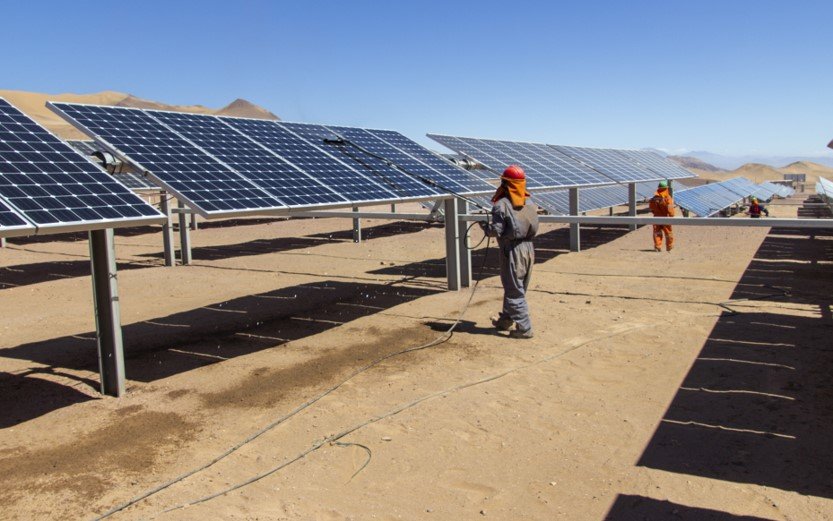The Environmental and Social Policy Framework (ESPF) includes the Inter-American Development Bank’s (IDB) commitment to environmental and social sustainability, and the ten performance standards that borrowing member countries must meet.
In addition, the framework should reflect safeguards and policies, as well as lessons learned, and good practices accumulated over the years.
The second draft proposal of the Environmental and Social Policy Framework was approved in July 2020 by the IDB Board of Directors. Although the proposed ESPF makes some positive progress, the draft does not demonstrate a significant departure from the bank’s current practices. Therefore, E3G recommends an enhanced fossil fuel exclusion, whereby the safeguards in the ESPF apply to both direct and indirect (financial intermediary) lending.
Oil
The IDB’s webpage outlines that the IDB may “participate in, promote or support” exploration including to “assist in identifying and locating the various sources of energy, both renewable and non-renewable”. Thus, no restrictions seem to be in place currently for upstream or exploration finance. Although the IDB’s draft ESPF includes a categorical exclusion of upstream oil exploration and development projects, the IDB should go further to definitively end all investment in midstream, and downstream oil projects as well.
If the IDB does not definitively end all upstream, midstream and downstream investments in oil, the IDB misses an opportunity to strengthen its policies to operationalise the bank’s commitment made in 2015 to align with the Paris Agreement. The IDB should follow the example of the European Investment Bank (EIB), which has defined Paris alignment as entailing an end to fossil fuel activities. The COVID-19 crisis has demonstrated the vulnerability of the oil industry, which faces structural decline and the risk of stranded assets as well as stranded revenue to developing countries.
As a public finance institution, the IDB should not be financing fossil-based infrastructure; it should leave that task to private capital markets and should focus on investing in energy projects that deliver climate neutrality as well as economic recovery and social opportunities. These include renewable energy, energy storage, interconnectors, smart grids, and energy efficiency.
Fossil gas
On gas, the draft ESPF should be strengthened so it is much clearer that renewable energy and energy efficiency will be the priority. Gas projects should be fully excluded in the case of upstream investments, and only allowed on a highly limited basis in the case of midstream and downstream investments, where climate-neutral alternatives have been proven to be infeasible, if not excluded altogether.
Although upstream gas exploration and development projects are excluded in the draft ESPF, it states that “consideration will be given to financing upstream gas infrastructure where there is a clear benefit in terms of energy access for the poor and where greenhouse gas (GHG) emissions are minimized, projects are consistent with national goals on climate change, and risks of stranded assets are properly analyzed”. This, however, is too lax; given that the world’s carbon budgets are already far exceeded by fossil fuel reserves, further exploration and development would be incompatible with the Paris Agreement. The EIB, for example, has already phased out upstream gas. More broadly, development finance institutions (DFIs) such as FMO, the Dutch Development Bank, exclude upstream gas.
The IDB’s Fossil Fuel Plant investment guidelines state IDB will “continue supporting those fossil fuel power plants that are designed to meet minimum efficiency and GHG emissions performance criteria and to use the best appropriate available technology to allow for high efficiency and lower GHG emissions intensity”. This is also not aligned with the Paris Agreement; the IDB should follow the example of the EIB which has phased out investment in fossil fuels, and established that any investments in gas plants would need to meet a strict Emissions Performance Standard of below 250 g CO2/kWh, averaged over the plant’s lifetime.
Energy access and other development benefits of gas are questionable. From a climate change standpoint, though gas is often presented as a low-carbon solution, this is contradicted by the latest science and technological realities. Gas can actively hamper the transition to a climate- neutral energy system, by displacing or crowding out renewable energy deployment. New renewables are cheaper than new fossil power generation (coal and gas) for most of the global population. From a development perspective, investment in fossil-based power generation assets with high operating costs may become stranded before end-of-life. Given a vastly oversupplied global gas market, sustained revenue from gas exploration thus hinges on globally expanding gas use, which is only possible if the world does not implement the Paris Agreement.
Against this backdrop, gas should not be a priority for the IDB’s investment if client countries are going to be facilitated to transition to a zero-emission economy in line with the goals of the Paris Agreement. Coal-to-gas switching in most regions offers very limited, short term emissions benefits (if any at all). Therefore, we propose this section should refer to switching from coal to renewable energy sources or energy efficiency measures.
Coal
The IDB’s coal fired power plant guidelines (2009) states that IDB will “continue supporting those coal plants that are designed to use the best appropriate available technology to allow for high efficiency and therefore lower GHG emissions intensity, and to meet internationally-recognized best practices and standards”. The wording is concerning, especially since there is no reference to carbon pricing.
In the IDB’s new approach, thermal coal mining or coal-fired power generation and associated facilities are included in the exclusion list. However, this exclusion only applies to “associated facilities which primary objective is related to the production, trade or use of coal for power generation or to the transmission of energy generated by a coal-fired power plant (e.g. a dedicated transmission line)”. While this is positive, the IDB should completely close the door on financing thermal coal mining or coal-fired power generation, and not allow exemptions for energy access or energy poverty when climate-neutral energy projects (e.g. in renewables, efficiency, or storage) could deliver the same energy requirements on a more affordable basis.
The IDB should also engage with countries of operations to shift away from coal. In doing, it would mirror action similar to the European Bank for Reconstruction and Development’s (EBRD’s) energy sector strategy. Importantly, the IDB’s ESPF should mention that all clients will be required to publicly disclose their coal exposure. This would mirror a key commitment of the recent International Finance Corporation (IFC) announcement. Furthermore, the IDB should consider in its next update of its energy policy to initiate new programmes to finance the retirement and replacement of coal assets, which could reduce costs to utility ratepayers while also assisting a just transition for workers and communities.
Download the full consultation response here.
Photo by abriendomundo for Adobe Stock


